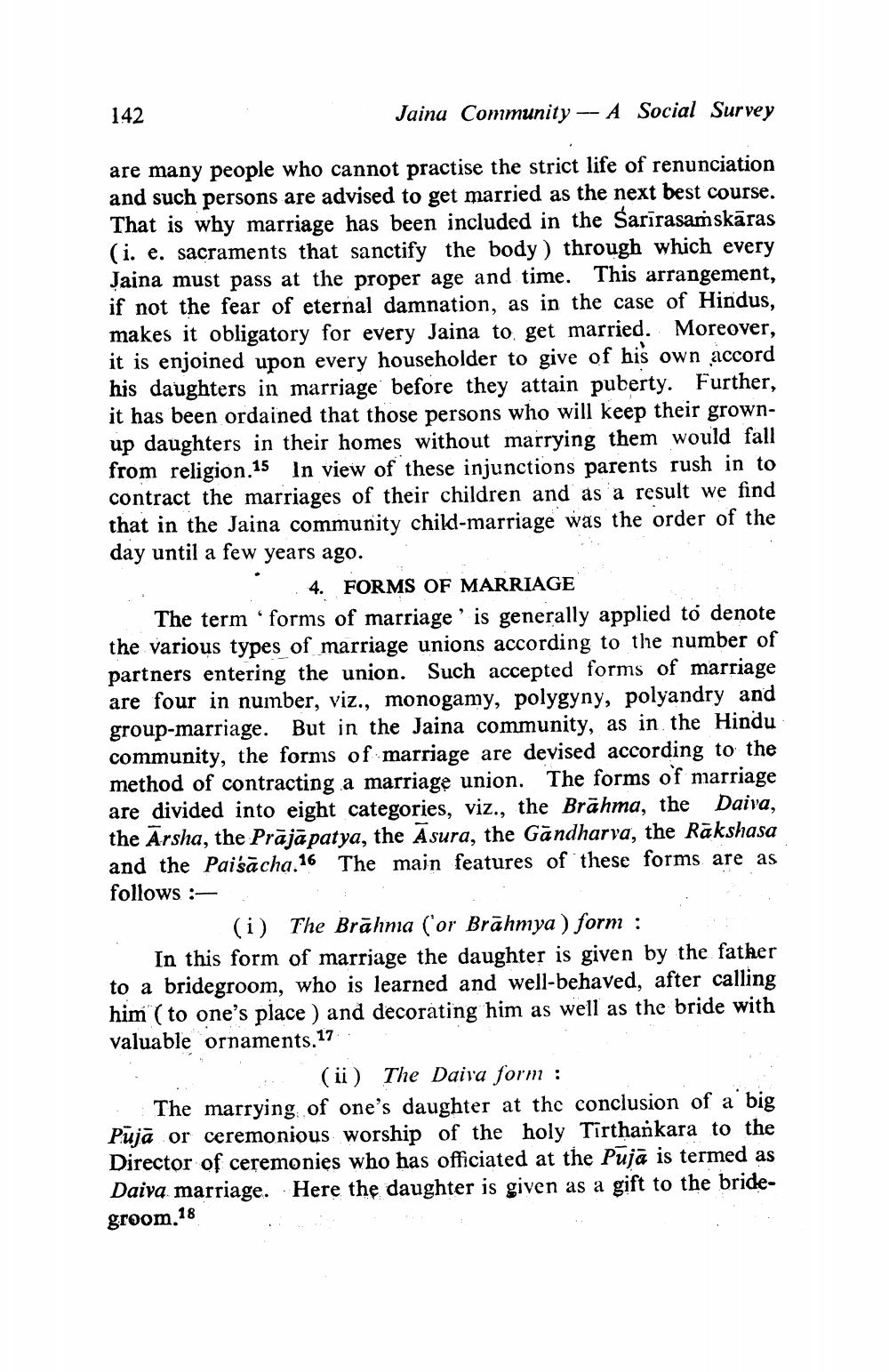________________
142
Jaina Community -- A Social Survey
are many people who cannot practise the strict life of renunciation and such persons are advised to get married as the next best course. That is why marriage has been included in the Sarīrasamskāras (i. e. sacraments that sanctify the body) through which every Jaina must pass at the proper age and time. This arrangement, if not the fear of eternal damnation, as in the case of Hindus, makes it obligatory for every Jaina to get married. Moreover, it is enjoined upon every householder to give of his own accord his daughters in marriage before they attain puberty. Further, it has been ordained that those persons who will keep their grownup daughters in their homes without marrying them would fall from religion.15 In view of these injunctions parents rush in to contract the marriages of their children and as a result we find that in the Jaina community child marriage was the order of the day until a few years ago.
4. FORMS OF MARRIAGE The term 'forms of marriage' is generally applied to denote the various types of marriage unions according to the number of partners entering the union. Such accepted forms of marriage are four in number, viz., monogamy, polygyny, polyandry and group-marriage. But in the Jaina community, as in the Hindu community, the forms of marriage are devised according to the method of contracting a marriage union. The forms of marriage are divided into eight categories, viz., the Brāhma, the Daiva, the Arsha, the Prājāpatya, the Asura, the Gandharva, the Rākshasa and the Paisācha. 16 The main features of these forms are as follows :
(i) The Brāhma ('or Brāhmya ) form : In this form of marriage the daughter is given by the father to a bridegroom, who is learned and well-behaved, after calling him ( to one's place ) and decorating him as well as the bride with valuable ornaments.17
(ii) The Daiva form : The marrying of one's daughter at the conclusion of a big Pūjā or ceremonious worship of the holy Tirthankara to the Director of ceremonies who has officiated at the Pujā is termed as Daiva marriage. Here the daughter is given as a gift to the bridegroom.18




